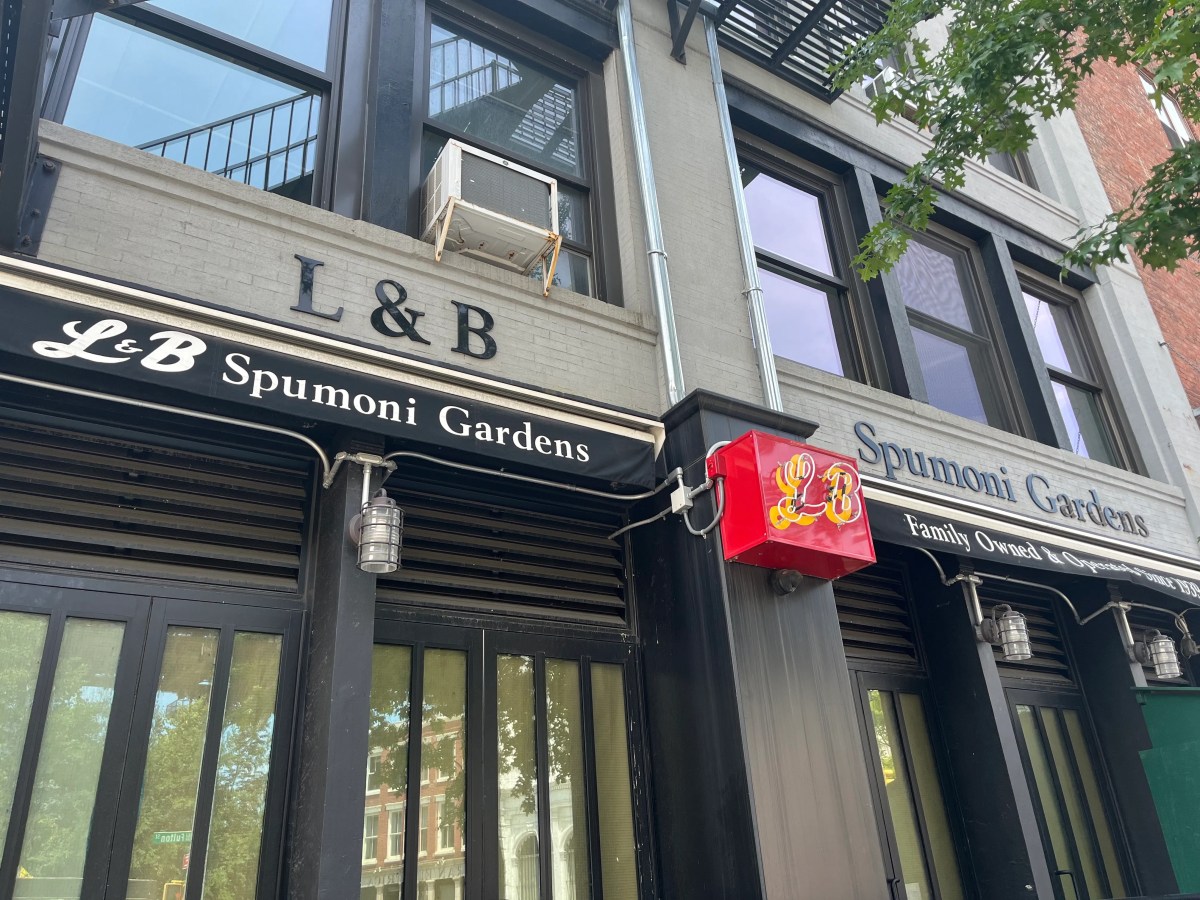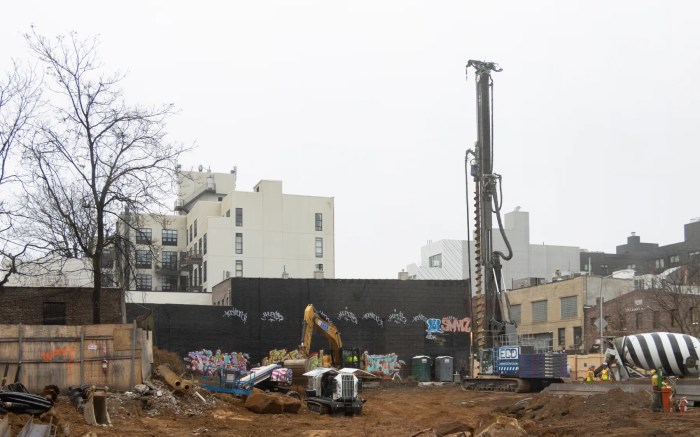By Vanessa Romo
Despite their intensity, the high-pitched squeals of toddlers playing around the “Dodo Bird” fountain in Rockefeller Park were almost inaudible on recent weekday afternoon, drowned out by the drilling of the World Financial Center ferry terminal to the south and the rumbling of engines from ferries docked at the temporary terminal to the north.
“It’s supposed to be a peaceful place and now it’s the opposite of that,” said A.I. Margolis, 39, during a momentary lull in the drilling. “There’s so much noise.”
On-site construction of the permanent ferry terminal near the Mercantile Exchange began on May 17, more than two years after the original was removed to make way for the $45 million project spearheaded by the New York and New Jersey Port Authority.
Although off-site construction has been underway for more than a year, this is the public’s first glimpse of the state-of-the-art 5-slip terminal now scheduled to be finished in December 2006.
Replacing the original 2-slip structure, the new terminal will be nearly three times bigger and extend much further out into the Hudson River. It will also have the capacity to process 16,000 people per hour and eventually connect to the World Trade Center transit center when that structure is completed in 2009.
The project was scheduled for completion in summer 2005 but was delayed by more than 18 months. Steve Coleman, a spokesperson for the Port Authority, did not say what had been the cause of the delay nor would he confirm if the project would still cost $45 million.
Since 2003, passenger ferries have been diverted about 400 feet north along the Hudson to a temporary 3-slip facility near Rockefeller Park.
But residents immediately objected to the new location of the terminal because of the diesel emissions from the boats.
To appease the community, the Port Authority funded an air monitoring study near the park, though Coleman did not provide results of the tests.
And at the time, Pat Smith, a spokesperson for New York Waterway, said the company was in the process of repowering the older ferry engines to low emissions engines.
Since then all but three of the company’s boats have had engine replacements, said Smith in a recent phone interview. “Most of the ferries servicing the W.F.C. have low emissions engines which exceed the federal low emissions standards going into effect in 2007,” he said.
Waterway is now operating the boats under contract from Billy Bey L.L.C.
Linda Belfer, chairperson of Community Board 1’s Battery Park City Committee, said it has been a long time since C.B. 1 had received any complaints about the air quality nor has she had any feedback from local residents regarding the construction of the new terminal.
But she added, “It’s not fair to blame all [the noise] on the ferry construction.” Two buildings just east of Rockefeller Park are now under construction, she said. “The question is, how noisy will be it be when it’s finished?”
google_ad_client = “pub-6226499064891091”;
google_ad_width = 468;
google_ad_height = 60;
google_ad_format = “468x60_as”;
google_ad_channel =”0606561524″;
google_color_border = “336699”;
google_color_bg = “FFFFFF”;
google_color_link = “0000FF”;
google_color_url = “008000”;
google_color_text = “000000”;
//–>
src=”https://pagead2.googlesyndication.com/pagead/show_ads.js”>
WWW Downtown Express






































